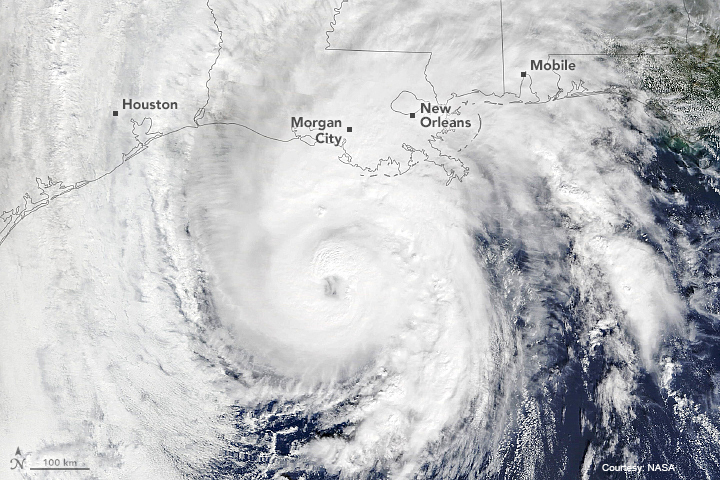A new study of how the 2020 major hurricanes and the COVID-19 pandemic affected each other as well as disaster response found that although prior experience enabled community-based organizations to respond to the pandemic, the pandemic is also creating new challenges to preparing for and responding to natural disasters.
“Two major crises hit Louisiana and coastal communities in the Southeastern United States in 2020 – a significant increase in the frequency and severity of hurricanes, and the COVID-19 pandemic,” says Benjamin Springgate, MD, MPH, Chief of Community & Population Medicine at LSU Health New Orleans School of Medicine.
Semi-structured interviews were conducted with 26 representatives of community-based programs in southern Louisiana. The participants ranged in age from 28 to 70. The majority (61.5%) were non-Hispanic white; 30.8% were Black; one participant (3.8%) was Latinx and one participant (3.8%) was Vietnamese. Three-fourths of the participants lived in Orleans Parish, and most represented local-level organizations. Participants represented 24 community-based agencies and organizations that provide a wide variety of services, including environmental and social justice issues impacting underserved communities, community health promotion, health and mental health services, disaster preparedness and recovery, funding of community initiatives, community development, faith-based services, affordable housing, child welfare advocacy and support, and criminal justice reform.
“Local leaders noted that due to the pandemic, it is now harder to plan for evacuations in the event of a hurricane,” adds Dr. Springgate. “Organizations find it is also more difficult to provide in-person client services and challenging to plan for providing food and other resources to residents who may shelter in place during a storm.”
The analysis also identified several strengths based on disaster preparedness experience and capabilities.
“Local organizations identified several strengths based on their disaster preparedness experience – particularly that based on prior experience with hurricanes, they already had a framework for how to respond and adapt to the novel challenges presented by COVID,” Dr. Springgate notes.
The analysis shows that the increase in demand for disaster-related services has been accompanied by a decrease in the availability of services due to a decline in available financial resources as well as the constraints on services delivery imposed by protocols designed to prevent the spread of the SARS-CoV-2 coronavirus.
The authors conclude that despite the anticipated challenges to delivering services in response to a natural disaster, the networks of partnerships and prior experiences with disaster preparedness and response, along with certain features of the community that have fostered resilience to adverse events, represent key assets in coping with the pandemic and with the current hurricane season. Though limited to a particular setting with extensive experience with climate-related disasters and preparedness and response, the lessons for interaction with a pandemic context may have important implications for approaches in other areas to consider enhancing preparedness and response resources, training and partnerships.
A Rapid Assessment of Disaster Preparedness Needs and Resources during the COVID-19 Pandemic. International Journal of Environmental Research and Public Health, 7 January 2021.



